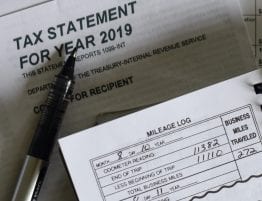The coronavirus pandemic has caused the IRS to delay its report to the Congress regarding reforms in the agency. Presently, the IRS has its hands full with sending out coronavirus stimulus checks, processing returns, and issuing refunds.
A few weeks back, the tax agency had to recall 10,000 employees from the office for “mission-critical functions” such as opening taxpayer correspondence, handling tax documents, taking phone calls, and other duties relating to the filing season. Bloomberg Tax discusses the changes the IRS is undergoing:
“IRS officials now plan to send the report by December, laying out recommendations for enhancing the taxpayer experience, improving employee training, and potentially reorganizing the agency. The agency had originally intended to send the report to Congress by July.
Covid-19 has forced the IRS to prioritize its response to the pandemic—actions to protect employees, to quickly implement new virus relief, and to handle the extended tax filing season, IRS Chief of Staff Lia Colbert, who leads the Taxpayer First Act Office, said Monday in an interview with Bloomberg Tax. Even so, the agency has told lawmakers that it plans to provide the report no later than December ‘because we don’t want to lose their energies and their excitement,’ she said.
Senate Finance Committee Chairman Chuck Grassley (R-Iowa) was alerted of the delay in an April 17 letter.
‘I expect the IRS will continue to take these reforms seriously,’ Grassley said in a statement Monday. Right now, the agency is ‘rightly focused like a laser’ on responding to the pandemic and implementing relief measures, he added.
The components that will be included in the IRS’s report have separate deadlines under the law (Pub. L. 116-25) signed last summer. The reorganization plan isn’t due until Sept. 30, while the other two pieces are due July 1. But it’s important to consider them all together, Colbert said.
‘What we really want to do is make sure there’s alignment in these strategies,’ she said. ‘They’re so big, they build upon each other, that it makes sense for us to bring these together into one comprehensive report.’
Virus Fueling Work
The challenges the agency is facing as a result of the pandemic are fueling its reform work, Colbert and others from the Taxpayer First Act Office said.
The IRS has moved from a ‘listening’ stage—gathering input from employees and private sector stakeholders across the country—to analyzing the comments it has received and developing strategies for meeting its goals, said Jim Clifford, a project director in the office.
It was during the latest stage that the IRS had to pivot to responding to the coronavirus, which has had the unexpected benefit of allowing the agency to test evolving ideas for objectives like improving engagement with partners in and outside of the government, Clifford said. The IRS brought together dozens of federal and state and local agencies to help spread the word to hard-to-reach individuals about the availability of direct stimulus payments under the virus relief law, known as the CARES Act (Pub. L. 116-136), he said.
The IRS has also learned it needs to find ways to increase its ability to interact with taxpayers online and provide more digital self-service options, Clifford said. This includes enabling taxpayers to file more forms electronically, expanding the use of e-signatures, and developing ways for taxpayers to digitally exchange documentation with the IRS in a secure fashion, he said.
Colbert said what the agency is learning now is shaping recommendations for reform strategies.
‘And then from the strategies we’ll craft organizational structure recommendations,’ she said.”
Fill out the form for a free and confidential consultation.








